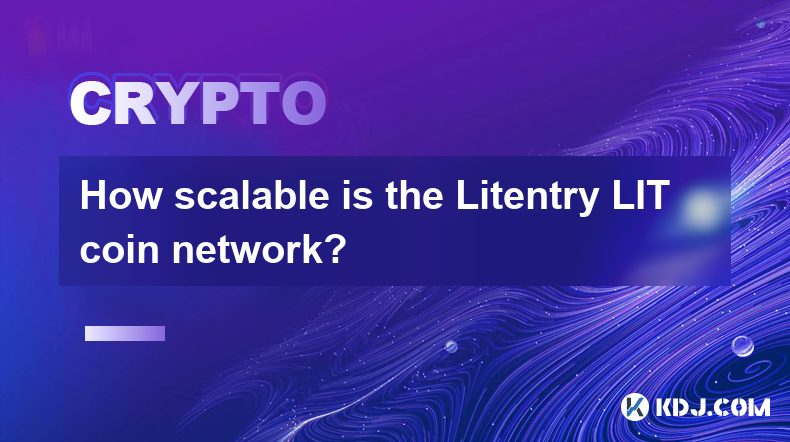-
 Bitcoin
Bitcoin $94,749.4957
0.19% -
 Ethereum
Ethereum $1,771.7486
-2.44% -
 Tether USDt
Tether USDt $1.0000
0.01% -
 XRP
XRP $2.1259
-0.89% -
 BNB
BNB $598.8122
0.00% -
 Solana
Solana $143.9875
-1.23% -
 USDC
USDC $1.0001
0.01% -
 Dogecoin
Dogecoin $0.1676
-1.94% -
 TRON
TRON $0.2450
-1.58% -
 Cardano
Cardano $0.6548
-1.36% -
 Sui
Sui $3.2260
-6.14% -
 Chainlink
Chainlink $13.5077
-1.48% -
 Avalanche
Avalanche $19.6824
0.28% -
 UNUS SED LEO
UNUS SED LEO $8.7093
0.64% -
 Stellar
Stellar $0.2552
-1.94% -
 Toncoin
Toncoin $3.0079
0.92% -
 Shiba Inu
Shiba Inu $0.0...01251
-1.73% -
 Hedera
Hedera $0.1725
-1.41% -
 Bitcoin Cash
Bitcoin Cash $355.6837
0.42% -
 Hyperliquid
Hyperliquid $20.4259
0.45% -
 Litecoin
Litecoin $82.4427
-4.69% -
 Polkadot
Polkadot $3.9246
-0.61% -
 Dai
Dai $1.0001
0.02% -
 Monero
Monero $285.6057
3.43% -
 Bitget Token
Bitget Token $4.2959
-0.11% -
 Ethena USDe
Ethena USDe $1.0003
0.00% -
 Pi
Pi $0.5785
-2.51% -
 Pepe
Pepe $0.0...07812
-1.62% -
 Bittensor
Bittensor $361.1649
-2.34% -
 Uniswap
Uniswap $4.8725
-2.51%
How scalable is the Litentry LIT coin network?
The Litentry LIT Coin Network employs a suite of scalability features, including data sharding, cross-chain interoperability, rollup technology, parallel processing, and smart contract optimization, enabling it to handle high throughput, minimize latency, and reduce transaction costs.
Dec 31, 2024 at 11:31 pm

Key Points:
- Overview of the Litentry LIT Coin Network and its Scalability Features
- Analysis of Litentry's Scalability Solutions and their Benefits
- Comparative Analysis of Litentry with Other Scalable Blockchain Networks
- Future Development Roadmap and Planned Scalability Enhancements
Overview of the Litentry LIT Coin Network
Litentry is a decentralized identity aggregation protocol that connects decentralized identifiers (DIDs) with off-chain data sources. It aims to address the challenges of data privacy, interoperability, and scalability in decentralized identity systems.
The LIT Coin is the native utility token of the Litentry network. It is used for:
- Paying for transaction fees
- Staking to participate in network validation and governance
- Incentivizing data providers to share their off-chain data
- Purchasing premium services on the Litentry platform
Scalability Features of the Litentry LIT Coin Network
The Litentry team recognizes the importance of scalability for the long-term success of the network. To address this, they have implemented the following scalability features:
- Data Sharding: LIT Coin data is partitioned into multiple shards, which are stored on different nodes. This distributes the load across the network and improves overall performance.
- Cross-Chain Interoperability: LIT Coin is designed to be cross-chain interoperable, allowing it to process requests from other blockchains and scale horizontally.
- Rollup Technology: LIT Coin utilizes Layer 2 rollup technology to combine multiple transactions into a single block, which is then processed by the network. This significantly reduces the network's computational overhead.
- Parallel Processing: LIT Coin employs parallel processing techniques to distribute computation tasks across multiple CPUs or clusters, improving efficiency and minimizing latency.
- Smart Contract Optimization: The LIT Coin smart contracts are meticulously optimized to minimize resource consumption and gas fees, further contributing to network scalability.
Comparative Analysis with Other Scalable Blockchain Networks
The scalability of Litentry LIT Coin compares favorably with other notable blockchain networks:
Network Throughput: Litentry's sharding and parallel processing capabilities allow it to achieve high throughput rates for data requests and transactions.
Latency: The rollup technology and cross-chain interoperability enable Litentry to minimize latency, ensuring fast response times for users and seamless cross-blockchain interactions.
Cost-Effectiveness: Litentry's smart contract optimizations and efficient use of resources result in low transaction fees, making it a cost-effective solution for decentralized identity management.
Future Scalability Enhancements
As technology advances, the Litentry team is actively exploring and implementing new solutions to enhance scalability:
- Adaptive Sharding: Litentry plans to introduce adaptive sharding mechanisms that dynamically adjust the number of shards based on network load.
- Quantum Computing Integration: The team is researching the potential of quantum computing to accelerate processing and further enhance scalability.
- Offloading to Edge Nodes: LIT Coin will explore offloading some data processing tasks to edge nodes, distributing the load and reducing latency.
FAQs
Q: What is the current transaction speed of the Litentry LIT Coin network?
A: Depending on network conditions, Litentry can process a high volume of transactions per second, making it highly responsive for data requests and identity-related interactions.
Q: How does Litentry compare to other decentralized identity solutions in terms of scalability?
A: Litentry's combination of sharding, cross-chain interoperability, and rollup technology positions it among the most scalable decentralized identity solutions available.
Q: What factors contribute to the low transaction fees on the Litentry LIT Coin network?
A: Litentry's smart contract optimizations, along with its use of Layer 2 rollups, minimize computational overhead and gas costs, making transactions highly cost-effective.
Q: What are the advantages of data sharding in the Litentry LIT Coin network?
A: Data sharding helps to distribute the network load, enhances security by preventing single points of failure, and improves the overall performance and scalability of the Litentry platform.
Q: How does Litentry's parallel processing contribute to network scalability?
A: By parallelizing computation tasks, Litentry can process multiple data requests and transactions simultaneously, reducing latency and improving the overall throughput of the network.
Disclaimer:info@kdj.com
The information provided is not trading advice. kdj.com does not assume any responsibility for any investments made based on the information provided in this article. Cryptocurrencies are highly volatile and it is highly recommended that you invest with caution after thorough research!
If you believe that the content used on this website infringes your copyright, please contact us immediately (info@kdj.com) and we will delete it promptly.
- As the Crypto Market Enters a New Growth Phase, Savvy Investors Are Focusing Less on Fleeting Trends and More on Real Potential
- 2025-05-07 01:25:12
- The meme coin firstborn, Dogecoin, continues to consolidate
- 2025-05-07 01:25:12
- Pepe Coin price has dropped in the last six consecutive days as sentiment in the crypto market has waned.
- 2025-05-07 01:20:12
- Space and Time (SXT) Token: The Ultimate Guide
- 2025-05-07 01:20:12
- HASTO YOURS DAY, Ajouan
- 2025-05-07 01:15:11
- The UK Treasury Doesn't Want a Bitcoin Reserve and It's Making Sure We Get That
- 2025-05-07 01:15:11
Related knowledge

BSV transaction fees suddenly increased? How to adjust the handling fee to save costs?
May 02,2025 at 06:42am
Understanding BSV Transaction FeesBSV (Bitcoin SV) aims to fulfill the original vision of Bitcoin as a peer-to-peer electronic cash system. One of the key elements in this system is the transaction fee, which compensates miners for including transactions in the blockchain. Recently, users have noticed a sudden increase in BSV transaction fees, which can...

Does BSV transaction require real-name authentication? Is anonymous trading feasible?
May 03,2025 at 03:14pm
The question of whether BSV (Bitcoin SV) transactions require real-name authentication and whether anonymous trading is feasible is a complex one, deeply intertwined with the broader dynamics of cryptocurrency regulations and blockchain technology. Let's delve into these aspects to provide a comprehensive understanding. Understanding BSV and Its Transac...

How to solve the high slippage of BSV transactions? How to choose between limit and market orders?
May 02,2025 at 09:01pm
High slippage can be a significant concern for traders dealing with Bitcoin SV (BSV) transactions. Slippage refers to the difference between the expected price of a trade and the price at which the trade is actually executed. This can occur in fast-moving markets or when there is low liquidity. To address this issue, understanding the mechanics of slipp...

What if BSV transactions are frozen? How to contact customer service to unblock the account?
May 05,2025 at 05:01am
When dealing with Bitcoin SV (BSV) transactions, encountering issues such as frozen transactions can be a stressful experience. This article will guide you through the process of understanding why BSV transactions might be frozen and how to contact customer service to unblock your account. We will cover the reasons behind frozen transactions, steps to t...

What if BSV node synchronization is slow? How to optimize local wallet performance?
May 03,2025 at 04:35pm
When dealing with BSV (Bitcoin SV) node synchronization and optimizing local wallet performance, it's crucial to understand the underlying issues and implement effective solutions. Slow synchronization and poor wallet performance can significantly hinder your experience with the BSV network. This article will delve into the reasons behind slow BSV node ...

How to check BSV transaction records? How to use the blockchain browser?
May 03,2025 at 06:50am
Checking BSV (Bitcoin SV) transaction records and using a blockchain browser are essential skills for anyone involved in the cryptocurrency space. These tools allow you to verify transactions, check wallet balances, and understand the flow of funds on the blockchain. This article will guide you through the process of checking BSV transaction records and...

BSV transaction fees suddenly increased? How to adjust the handling fee to save costs?
May 02,2025 at 06:42am
Understanding BSV Transaction FeesBSV (Bitcoin SV) aims to fulfill the original vision of Bitcoin as a peer-to-peer electronic cash system. One of the key elements in this system is the transaction fee, which compensates miners for including transactions in the blockchain. Recently, users have noticed a sudden increase in BSV transaction fees, which can...

Does BSV transaction require real-name authentication? Is anonymous trading feasible?
May 03,2025 at 03:14pm
The question of whether BSV (Bitcoin SV) transactions require real-name authentication and whether anonymous trading is feasible is a complex one, deeply intertwined with the broader dynamics of cryptocurrency regulations and blockchain technology. Let's delve into these aspects to provide a comprehensive understanding. Understanding BSV and Its Transac...

How to solve the high slippage of BSV transactions? How to choose between limit and market orders?
May 02,2025 at 09:01pm
High slippage can be a significant concern for traders dealing with Bitcoin SV (BSV) transactions. Slippage refers to the difference between the expected price of a trade and the price at which the trade is actually executed. This can occur in fast-moving markets or when there is low liquidity. To address this issue, understanding the mechanics of slipp...

What if BSV transactions are frozen? How to contact customer service to unblock the account?
May 05,2025 at 05:01am
When dealing with Bitcoin SV (BSV) transactions, encountering issues such as frozen transactions can be a stressful experience. This article will guide you through the process of understanding why BSV transactions might be frozen and how to contact customer service to unblock your account. We will cover the reasons behind frozen transactions, steps to t...

What if BSV node synchronization is slow? How to optimize local wallet performance?
May 03,2025 at 04:35pm
When dealing with BSV (Bitcoin SV) node synchronization and optimizing local wallet performance, it's crucial to understand the underlying issues and implement effective solutions. Slow synchronization and poor wallet performance can significantly hinder your experience with the BSV network. This article will delve into the reasons behind slow BSV node ...

How to check BSV transaction records? How to use the blockchain browser?
May 03,2025 at 06:50am
Checking BSV (Bitcoin SV) transaction records and using a blockchain browser are essential skills for anyone involved in the cryptocurrency space. These tools allow you to verify transactions, check wallet balances, and understand the flow of funds on the blockchain. This article will guide you through the process of checking BSV transaction records and...
See all articles




















































































